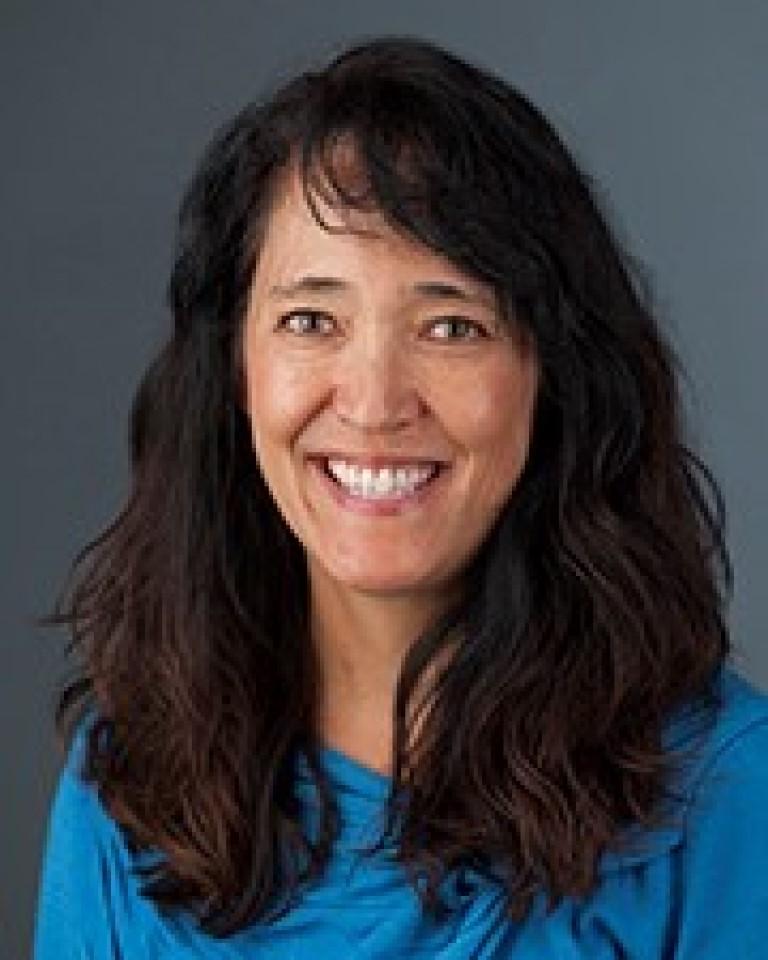Paulyn Cartwright

MENTOR SPOTLIGHT | OCTOBER 2019
Department: Ecology and Evolutionary Biology
Describe your research/creative scholarship in a few sentences that we can all understand:
I study the evolution of a group of marine invertebrates called cnidarians. Cnidarians include corals, sea anemones, hydras, and jellyfish. My lab is interested in understanding the genes that control how they develop and how these genes might change in evolution to generate the diversity of forms and life cycles found in this group.
Q: How did you first get interested in doing research or creative work?
A: As an undergraduate at UCLA I worked as a student hourly washing dishes in a lab. Although I was the primary dishwasher for all four years, I also got to get involved in some aspects of research. I loved being in a research environment and found it much more interesting and engaging than what I was learning in the classroom. It was remarkable to me that one could have a career in coming up with and then answering a question through research.
Q: What do students in your discipline learn by doing research that they wouldn’t learn by just taking classes?
A: The most valuable skill students can learn from doing research is critical thinking. Students are often surprised at their own biases in “hoping for a particular result” and instead they learn how to weigh all the evidence and come up with the best explanation for the data at hand. The ability to interpret evidence critically and objectively is an important skill, not just for science but for many aspects of their everyday life.
Q: What do you find to be the most exciting part of doing research or creative work? What makes this line of work meaningful and interesting to you?
A: I am a naturalist at heart. I love to discover new things in nature, which can include uncovering gene sequences, genetic pathways, and evolutionary patterns. I am continually overwhelmed by the species diversity that has evolved in the history of life; the disparate forms, life histories and ecological strategies that we find in nature are remarkable. Because life evolved using the rules of nature, the overwhelming complexity and diversity can be studied and understood. Being an evolutionary biologist is like being a detective, uncovering patterns of the ancient past with clues that are left behind in the biology of their descendants. Nowhere is this diversity more spectacular than in the marine invertebrate realm.
Q: What advice do you have for undergraduates interested in doing research in your field?
A: Find a lab at your home institution so you can be exposed to the process of research. The particulars of the research are not as important as finding a good mentor and a supportive lab environment. Most of the skills you learn can be transferred to another system if your interests change. If you love marine invertebrates, then if at all possible, try to take a summer field course at a marine station and look into applying for scholarships that support these opportunities. Coming from a land-locked state such as Kansas limits our exposure to the marine environment, and studying animals in their natural habitat is a life changing experience.
Q: For many students, doing research or a larger creative project is the first time they have done work that routinely involves setbacks and the need to troubleshoot problems. Can you tell us about a time that your research didn’t go as expected? Or about any tricks or habits that you’ve developed to help you stay resilient in the face of obstacles?
A: It would be more difficult to find a time when my research DID go as expected! Every time I have a setback, I tell myself and my students that even failed experiments and negative results are useful for moving forward. Science is a process that often involves two steps forward and one step back. The ability to withstand disappointments, persist in the face of challenges and troubleshoot through difficult experiments are all skills that make us better scientists. It was much more difficult to stay resilient early in my career as I didn’t have a track record to prove to myself and others that I could succeed. But looking back, I can better understand that it was the setbacks that helped give me the fortitude to keep going. When I am discouraged, I like to spend time in the lab and simply look at the animals under the microscope. It reminds me of why I am doing what I am doing.
Q: How do you spend your time outside of work?
A: I am a recent empty-nester, so with my kids in college I needed to find something other than work to fill that gap. I became a Court Appointed Special Advocate (CASA) for kids in the foster system. I am able to use my organizational and troubleshooting skills to help kids in need of care. I also spend a lot of time advocating for diversity and inclusion in STEM. I am a first-generation college student and am sympathetic to the challenges of navigating academics for low income and under-represented individuals. I advocate for policies that help lower barriers that have historically prevented diversity and inclusion. On weekends my favorite thing to do is to go for a walk with my husband and dog.